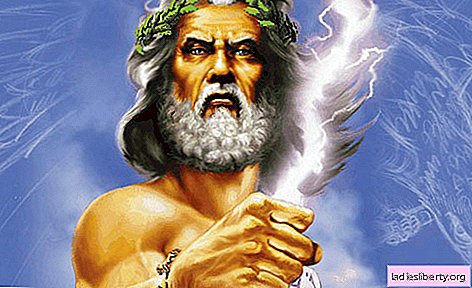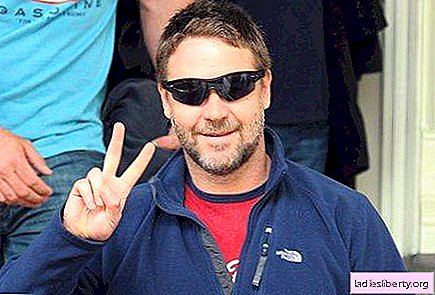
Holidays august 21
Stribog Day
In East Slavic mythology, Stribog is the god of the wind born from the breath of the Family. Stribog causes and stops a storm or other phenomena associated with the wind. He is also the brother of Perun, and together they command thunder and lightning. It is believed that Stribog lives in the sea on the island of Buyan, daily creating 77 winds that sends in all directions. These winds are very strong and can dry rivers and crush forests.
Winds causing tornadoes have always been a mysterious and frightening phenomenon. The Slavs called for help of Perun, conjured tornadoes, throwing stones, knives at them, and beat them with sticks. On the other hand, the Slavs also know the concept of wind as a spirit (soul). They donated ribbons, rags of flour, cereal, cereal, bread, grain, scattering them downwind in an open field, asking for winds suitable for harvest.
August 21 on the folk calendar
Miron Vetrogon
On this day, the memory of Miron of Crete, bishop, is celebrated. According to legend, he was an amazingly kind person, his name is associated with many amazing legends. The inhabitants of Crete knew about his kindness, so they unanimously elected him bishop. After that, Miron began to work miracles. For example, the Triton River, which overflowed the banks and threatened the city with flooding, was at one stroke of the clergyman’s rod returned to the channel. In Russia, Miron was nicknamed Vetrogon. Strong winds often occurred on his holiday. The weather on that day judged the weather next January. Blackberries were harvested on myron in the forest. Our ancestors knew about the healing properties of this berry and used it for colds and as a diaphoretic. It was also valued for its taste and smell, and the leaves of blackberry along with the leaves of strawberries and currants were brewed like tea.
Historical events of August 21
August 21, 1911 - "Mona Lisa" was stolen from the Louvre
After the death of the artist Leonardo da Vinci, the famous "Gioconda" was acquired by the French king Francis I. In 1793, the painting was placed in the Central Museum of Art in the Louvre. Mona Lisa has always been the property of the national collection. In 1911, the painting was stolen by an employee of the Louvre, the Italian master Vincenzo Perugia. The loss was discovered the next day, the museum was closed, the search began. Through the press, the kidnapper was promised complete secrecy and reward for returning the picture, since there was a fear of destroying the masterpiece. There was no response to this statement. Two years later, the kidnapper decided to sell the painting, but was turned over to the police. The offender was sentenced to a year in prison. Never again in the 20th century did the famous Gioconda leave the Louvre.
August 21, 1940 - an attempt was made on the military and political leader of the USSR and Russia, Leo Trotsky
He was a member of the Central Committee of the Russian Communist Party of Bolsheviks, in 1917 he led the Petrograd Soviet of Soldiers and Workers Deputies, and was the leader of the October Revolution. In 1024, Stalin declared Trinity’s views a "petty-bourgeois deviation" in the RCP (B.). Subsequently, Trotsky steadily deviated from the leading line of the party, political and military work. In 1927, the struggle of Stalin and Trinity reached a peak. Leiba Bronstein was expelled abroad, expelled from the party, but nevertheless continued his activities in the field of politics and waged a literary and journalistic struggle against Stalinism. In the 30s, the NKVD was entrusted with the preparation and implementation of the assassination of Troitsky, who received shelter in Mexico. Several attempts were unsuccessful. In 1940, Trinity was killed.
August 21, 1957 - launch of the first intercontinental ballistic missile
Sergei Korolev, an outstanding scientist and creator of the best space-rocket systems, was the head of work on the creation of the R-7 and the technological equipment necessary to launch the rocket. The construction project was one of the largest engineering programs of the Soviet Union. Its implementation paved the way for the development of many scientific and technical industries related to rocket science. In 1957, the R-7 missile was successfully launched from Baikonur for the first time. In parallel with the R-7, the R-7A complex was developed, which has a longer flight range, an improved control system, more reliable engines and a lightened warhead.
August 21, 1968 - the introduction of troops of the Warsaw Pact countries into Czechoslovakia, the end of the "Prague Spring"
Czechoslovakia actively began to demonstrate independence from the USSR with the advent of Alexander Dubcek to the leadership of the Communist Party. A program of political reforms was put forward to build the so-called "socialism with a human face." Significantly weakened censorship, allowed free discussion, created a multi-party system. The desire was stated to ensure freedom of speech, establish control over the activities of state security bodies, facilitate the organization of private enterprises and a number of other changes.
These actions, according to the leadership of the USSR and other social countries, constituted a threat to the party and administrative system of the USSR and European countries. In 1968, in order to suppress the process of liberal democratic reforms, the troops of the USSR, Hungary, Bulgaria, Poland and the German Democratic Republic — Warsaw Treaty countries — were introduced. This put an end to the illusions of the inhabitants of Czechoslovakia in the possibility of reforming socialism as a system.
August 21, 1991 - defeat of the August putsch GKChP In Moscow
At about one in the morning, a tank column tried to break through the White House defense line. Three defenders died. In the morning, the withdrawal of troops began from Moscow. The conspirators were arrested. Gorbachev turned to the Soviet people on television, saying that the coup failed, and the conspirators underestimated that the people had changed by breathing in the air of freedom. In 1994, convicted GKChP members were released under an amnesty.
Born on August 21
Leonid Andreev (1871 - 1919) - writer of the Silver Age.
In 1897, Andreev successfully graduated from the university and began to practice law, in 1902 he began working as a journalist. He wrote feuilletons for the newspapers Courier and Moscow Herald. His first story was published there. Andreeva was noticed by Maxim Gorky and invited the author to the Knowledge partnership, which brought together many young writers. Fame came to Leonid Andreev. In 1906, his son Daniel was born, in the future the famous mystic writer, who wrote the novel "The Rose of the World." Having moved to Finland, Andreev writes his first dramatic works. During World War I, he opposes fascism with anti-German works.
Wii Artmane (1929-2008) - Latvian and Soviet film and theater actress, People's Artist of the USSR.
She studied at the acting studio at the theater, and after graduation she worked at the Art Academic Theater. Rainis. In 1999, she left to work at the Riga Youth Theater. The film debut of Wii Artmane took place in 1956, it was the film "After the Storm." In 1969, she was awarded the title of People's Artist.
Kim Cattrall (1956) - Anglo-Canadian actress.
Kim from a young age showed acting talents, so her parents did not interfere with her admission to the London Academy of Arts. Carroll went to conquer New York at the age of 16 years. She is also a graduate of the American Academy of Arts. The film debut was the movie "Pink Bud" in 1975. Kim Cattrall is the author of two books that are also published in Russia.
Name day on August 21
German, Emelian, Gregory, Miron, Joseph, Leonid, Fedor, Moses, Nikolai.











